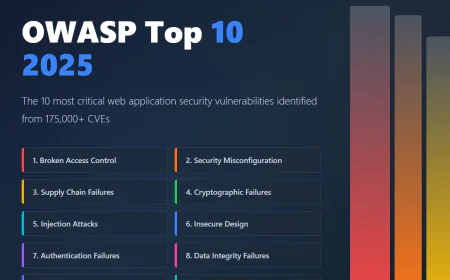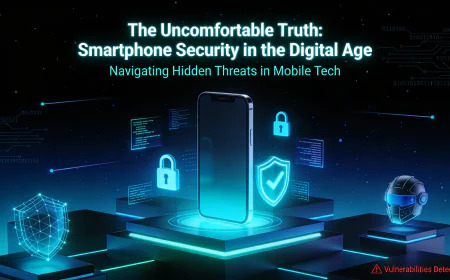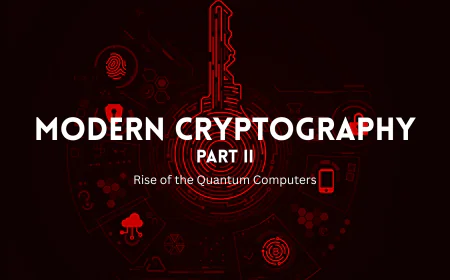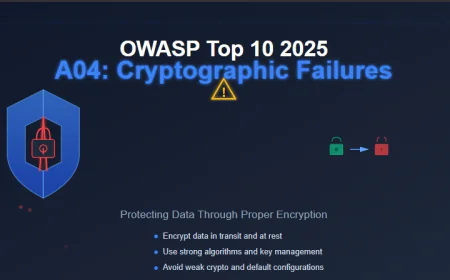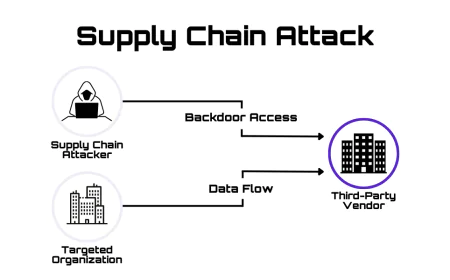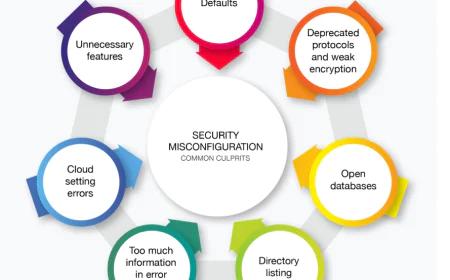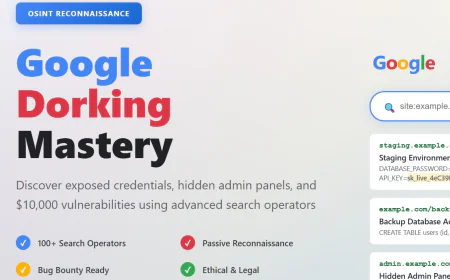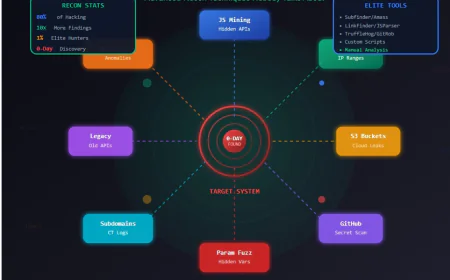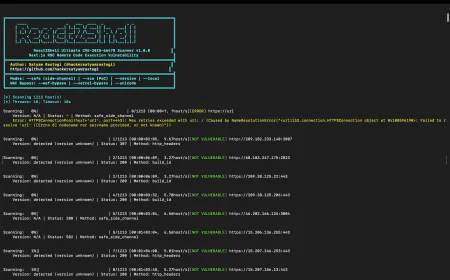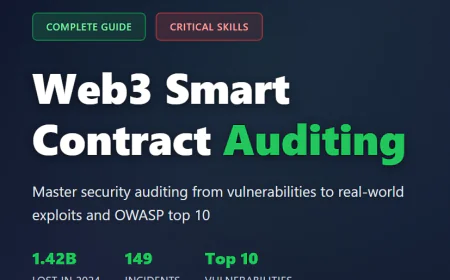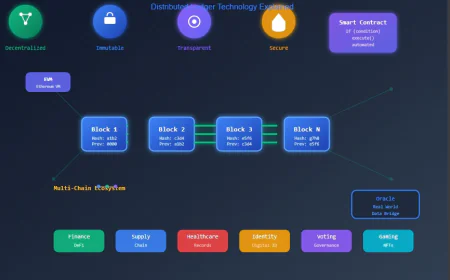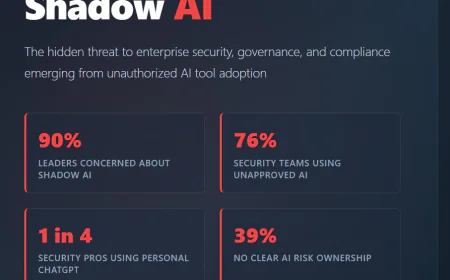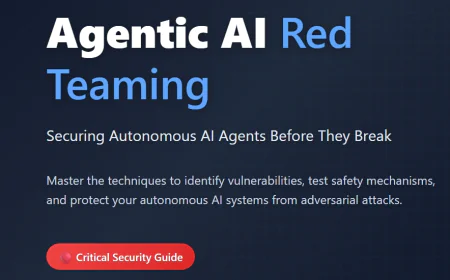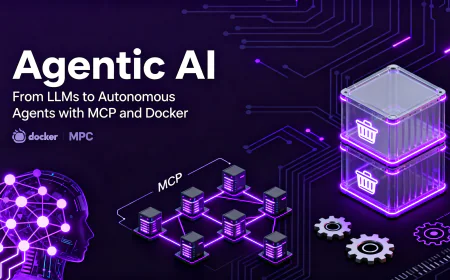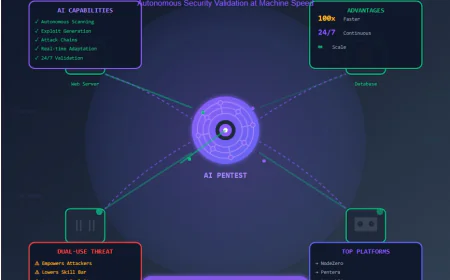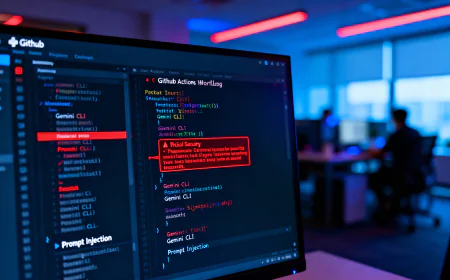The Cybersecurity Skills That Will Rule 2026
In 2026, cybersecurity will demand more than traditional technical expertise. From AI-driven threat detection to cloud security and ethical hacking, this article explores the top skills every cybersecurity professional must master to stay ahead of evolving digital threats.

There is a major turning point in the cybersecurity sector. To mention some staggering statistics: there are 4.8 million job positions that haven't been filled globally, the number of ransomware attacks has increased by 105%, and the market for cybersecurity is expected to grow to a whopping $345.4 billion by the year 2026. All these situations have made skilled people indispensable like never before. But the whole thing is not only about the shortage; it is a skill-based transformation. The year 2026 will see the professionals who are going to be the main players in the market not those with the skills of the past but rather those who will be having a combination of the following skills: deep technical knowledge, fluency in AI, and strong understanding of business strategies.
The AI/ML Security Revolution: From Optional to Essential
Artificial intelligence and machine learning have moved from being emerging technologies to the most significant cybersecurity skills for the year 2026. As per the ISAC2 Cybersecurity Workforce Study, the gap in skills for AI/ML security area is the largest at 34% which is even bigger than that of cloud security. On the other hand, it is not merely about the application of AI tools, companies are in need of professionals who are knowledgeable in topics like the mathematical principles, neural network architectures, and machine learning techniques which form the basis of AI systems. The need is arising from the fact that AI is both a powerful force behind the cutting-edge defenses and the most sophisticated attacks. The ISACA Tech Trends report for 2026 found out that 63% of the security professionals are considering AI-induced social engineering as the most significant threat for the year, which has never been the case except for malware attacks in the past. On the other hand, 62% of the respondents put AI and machine learning as their major technology priorities for 2026, which reflects the fact that AI-powered defenses are becoming a necessity rather than a choice. What makes AI/ML security professionals so essential is their capability to put into action AI-driven threat detection systems, make predictive models that detect anomalies before exploitation, scrutinize huge datasets for the purposes of revealing attack patterns, and the like, and also top the AI systems with their protection against adversarial attacks, model poisoning, and prompt injection. In the same vein, as Harvard's AI/ML Cybersecurity internship description points out, companies require individuals who have "demonstrated curiosity in AI/ML security, including adversarial attacks, model poisoning, prompt injection, and data leakage". The pay scale reflects this demand. AI/ML cybersecurity experts demand very high salaries, and even interns are compensated at the rate of $31-46 per hour while senior positions receive six-figure salary packages. Additionally, the organizations that are putting AI in security operations are also reporting $1.9 million in breach cost savings, thus making very strong financial grounds for investing in AI-skilled personnel very much alive.

Identity Security Posture Management: The Emerging Specialty
Identity Security Posture Management (ISPM) experts will be among the cybersecurity professionals in high demand by 2026. Organizations still suffer identity-related incidents and attackers mainly use identity as their attack vector, thus ISPM has become not only a security concept but a necessity for the entire company's operation. New ISPM capabilities, innovations in securing passwordless environments were highlighted at RSAC 2025, with major vendors such as RSA and Saviynt making the announcement of the launch of extensive ISPM solutions as key offerings. The framework covers eight essential areas: broad data gathering, identity lifecycle management, access authorization, policies implementation, privilege management, fraud detection, compliance automation, and risk scoring for identities. ISPM experts must be well-versed in security settings of Active Directory, IAM architectures, privilege escalation methods, password-free authentication systems, and AI-enhanced identity risk analytics. Besides, the professionals are expected not only to evaluate but also to continuously enhance the identity risk posture of an organization in a mixed cloud environment while applying the least privilege principle across the board. According to the INE Security's report, ISPM is the area where "the highest market demand overlaps with hands-on technical expertise." Organizations are in such a critical situation that they are willing to pay for the professionals who can secure their hybrid environments with their practical expertise. The ISPM conceptual framework developed by RSA is targeting specifically the CISOs, identity architects, and IT leaders who are in charge of protecting access in complicated environments.

Zero Trust Architecture: The $200K Skill Set
The experts in Zero Trust architecture have topped the list of the most lucrative specializations in the cybersecurity field and those with the necessary security clearance get salaries as high as $200,000. The need for such professionals arises from the basic change in the security approach of businesses—perimeter-less defenses and models where no user or device can be automatically trusted are the new trends. The architects of Zero Trust need to have high competency levels in different areas i.e. implementing network segmentation through micro-perimeters and Software-Defined Networking (SDN), providing Identity and Access Management with continuous verification, real-time threat-adaptive dynamic access controls, embedding security through multifactor authentication using biometric and behavioral analytics and the integration of SIEM (Security Information and Event Management) tools with AI-based threat detection. Essential certifications cover CISSP, CCSP, CASP+, Security+, Microsoft Azure Security Engineer Associate, CEH, and also Zscaler Zero Trust Cyber Associate (ZTCA) and ISC2 Zero Trust Strategy Certificate as specialized credentials. Companies not only demand certifications but also require experts who are skilled in deploying Zero Trust solutions and who are very familiar with frameworks such as NIST SP 800-207. The UK cybersecurity market mirrors the rest of the world by having early adopters of the technology in the same manner as other regions like the US and Western Europe. Besides, the sudden requirement to implement remote work giving rise to the need of continuous verification across the network turned the existing demand spotlights on. The new trend of the hybrid workplace, already in the making, is just pointing to the same direction in terms of demand for such professionals, if not more.
Cloud Security: The Non-Negotiable Foundation
According to ISC2 data, cloud security expertise is still the most crucial skill, with a 30% gap, which is the second largest gap. When companies move their operations to AWS, Microsoft Azure, and Google Cloud Platform, the need for securing these environments has now become a core capability of the business rather than a specialized area. Cloud security professionals have to protect the architectures from misconfigurations, which is the main cause of cloud breaches, ensure that companies are complying with regulations concerning data in the different places they operate, watch for threats in real-time in the constantly changing environments, set up the cloud infrastructures securely and provide the security solutions which are most suited to the particular business needs. The knowledge also covers hybrid and multicloud strategies, DevSecOps integration and the use of cloud-native security tools. To make an organization successful, a professional with an all-around knowledge of both cloud platforms and security architecture is needed in this modern day and age of the technology world. Among the high-value certifications are those that are cleared with AWS Certified Security – Specialty, Microsoft Certified: Azure Security Engineer Associate, Certified Cloud Security Professional (CCSP), and Google Professional Cloud Security Engineer. The compensation is indicative of security's king role in the cloud. Cloud Security Engineers and Cloud Security Architects are the ones that are highly paid among the various security specialists with the likes of DevSecOps Engineers who make the link between development and security operations. One study, for instance, stated, "cloud expertise is no longer optional—it's essential".
Penetration Testing and Ethical Hacking: The Proactive Defense
Penetration testing is still one of the most wanted and needed cybersecurity skills even if the reason is the increasing automation or the opposite. Organizations see the proactive security assessments that discover weaknesses and the attackers cannot exploit them as an important step in risk management. A modern penetration tester has to be very well versed in the latest hackers' tools, programming languages such as (Python, C/C++, JavaScript, PHP, Go), networking protocols, and attack frameworks. The function of the penetration tester has changed from just manual exploitation to automated tools, cloud penetration testing, mobile application security assessment, and IoT device testing.
The Certified Ethical Hacker (CEH) and the Offensive Security Certified Professional (OSCP) are the most important certifications, which demonstrate both the theory and practice. Penetration testing roles with the highest demand are found in several specialties: the traditional Penetration Testers, the Crowdsourced Red Team Specialists who manage the distributed testing, the Cybersecurity Directors in charge of the assessment programs, Enterprise Security Architects developing the secure systems, Vulnerability Analysts who decide which threats to fix first, and the Red Team Operators who mimic the upscale enemy. The person factor is still the most important one. As the manual process of security testing is replaced by automated vulnerability scanning, the penetration testers are now spending more time on areas such as attack chains, business logic flaws, and exploitation techniques where human intuition and adversarial thinking are required.

Incident Response and Threat Hunting: Real-Time Defenders
Incident response and digital forensics are the fourth-most sought-after skills with a gap of 25% with respect to the underlying organizations' urgency for specialists able to spot, scrutinize, and kill threats in no time at all. The proactive security paradigm underscores the importance of "real-time detection of attacks, their anticipation, and rapid roll-back together with damage assessment and correction measures being in place." Security Operations Center (SOC) staff members such as analysts, threat hunters, and incident responders are required to have an advanced level of knowledge regarding Security Information and Event Management (SIEM) systems, Endpoint Detection and Response (EDR) tools, filling in the knowledge gap with threat intelligence, malware analysis and reverse engineering, digital forensics procedures, and automated response orchestration. Plus, the ability to keep a cool head and work efficiently even during a crisis while documenting everything in detail for post-incident analysis and legal proceedings is a must-have skill. Novelties in the field consist of Mobile Threat Analysts who counter the enormous rise in mobile attack vectors, AI Security Experts who figure out AI-assisted assaults and protect AI systems, and automatic SOC analysts who use AI to speed up threat detection and response. Organizations that conduct AI-based SOCs report that 45% utilize AI for automatic incident detection and hunting, while 45% transfer the analyst's time to advanced threat hunting and analysis. The employment of AI in SOC functions brings about new skill demands. It is necessary that the professionals know how to use AI-based software, explain the results, adjust the models to cut down on false positives, and make sure that a human is always in control of the automated responses.
The Convergence Skills: What Sets Top Professionals Apart
Cybersecurity experts of the future will not only possess superior individual technical prowess but also have the so-called convergence skills that combine various fields as well.
Communication and business acumen skills have made the tech controls become part of the business goals. If the case of cybersecurity is moving from a tech skill area to a business one, then the capacity to explain security matters in simple terms to non-tech people will be more and more important for one's career to grow. Companies want people who can speak risk in the language of business, support security investments through ROI analysis, and easily work with other departments.
Risk assessment and management are the main tools to the professionals for the best and easiest threat elimination through a proper strategy. There is no need to be the last one to suffer as 74% of security professionals put current threats as the most difficult to deal with in the last five years, thus the companies would very soon want those who could do exhaustive risk assessment, propose mitigation tactics and so forth with the movement of security funds in line with actual business risk.
Continuous learning mindset the mindset of continuous learning distinguishes between the professional groups that do well and those that are left behind. The Bureau of Labor Statistics predicts that the cybersecurity workforce will expand by 29% in the next nine years—that is, cybersecurity jobs will grow much faster than other occupations. And keeping up with the trends of the industry will be a hard task that requires a lot of the following: Besides education, you will need certification updates, hands-on lab practice, active participation in cybersecurity communities, and up-to-date knowledge of new threats and defensive techniques.
Automation and scripting functions significantly increase the effectiveness of the professionals. Although programming isn't necessarily required for every a position, the knowledge of Python, PowerShell, Bash or alike allows the workers to do a lot of things like to set up their own security tools, to analyze the data and draw conclusions, to connect different security platforms.

The Critical Certifications for 2026
The proper selection of certifications to be strategic will hasten the development of one's career and assure one's knowledge to the employers. Presently, the following are the top-notch certifications to be obtained in 2026:
Foundational: CompTIA Security+ (meets DoD 8570 standards), Certified in Cybersecurity (CC) from ISC2, and CEH (Certified Ethical Hacker).
Advanced Technical: CISSP (Certified Information Systems Security Professional), OSCP (Offensive Security Certified Professional), GIAC certifications in different areas, CASP+ (CompTIA Advanced Security Practitioner).
Specialized: AWS Certified Security – Specialty, Microsoft Certified: Azure Security Engineer Associate, CCSP (Certified Cloud Security Professional), Zscaler Zero Trust Cyber Associate (ZTCA), ISC2 Zero Trust Strategy Certificate.
Emerging: CompTIA SecAI+ (to be launched in 2026 for AI security), SANS AI Cybersecurity courses, and vendor-specific AI security certifications.
More and more organizations are putting a higher premium on skilled practitioners with hands-on experience rather than just theoretical knowledge, thus certifications that include labs and real-world simulations are particularly valued.
The Talent Crisis and Opportunity
The lack of skilled personnel in cybersecurity is a twofold issue—it is a crisis at one end and an opportunity at the other. The lack of 4.8 million skilled professionals is going to be a huge problem for the corporations but, conversely, the skilled people will have the best career opportunities ever. Organizations with significant skill gaps are almost 100% more susceptible to suffering data breaches that can get really serious; the average costs of such incidents are $1.76 million higher than those of well-staffed companies. The above situation creates an immediate need for the hiring, upskilling, and retention of employees. The fact that 64% of organizations have made it a rule that employees must take up cybersecurity training or acquire certifications is a sign that the development of the workforce is considered a strategic must and not merely an option for professional development. Furthermore, non-traditional paths such as apprenticeships and "new collar" jobs that prioritize skills over formal education are diversifying access to the profession. Cybersecurity is the choice area for career changers, tech-savvy people, and problem solvers. It offers not only a variety of well-paid careers but also a world where skills are the primary criterion. The guardians of the arena ensure that only authorized personnel access medical records and thus preserve patients' privacy; they also watch over and secure the flow of money to ensure that the financial institutions operate smoothly; in addition, they protect the infrastructural facilities that are critical to the everyday lives of modern societies.

The Verdict: Adapt or Be Left Behind
The cybersecurity competencies of 2026 are not just incremental updates but rather a radical change that has taken place through the ages. The core technologies allow for AI/ML security, Identity Security Posture Management, Zero Trust security, cloud security, penetration testing, and incident response. The traits that make the top-tier professionals stand out among the good ones are: great communication skills, high business understanding, good risk management, and an attitude towards learning that never stops. A clear message is sent to both current and future cybersecurity experts to welcome AI fluency, develop specialized knowledge in the most demanded areas, go for the right certifications, build up the hard skills through labs and real-world projects and finally, cultivate the soft skills necessary for effective collaboration. The experts who will be investing in these capabilities will not only find themselves working but also demanding high salaries and being the ones in charge of the company's security strategies. The mixed bag of an overwhelming demand for cybersecurity professionals, coming up with new threats, and the introduction of new technologies makes it a turning point in the cybersecurity world. The ones who get clear about the skills that will be in demand by 2026 and are ready to grow those skills will virtually take the digital security frontline for years to come. The question thus does not arise if cybersecurity is a profitable career path or not, since there are millions of unfilled positions and in addition to that threats keep increasing which is totally a yes. The question is do the professionals develop the specific and high-value skills that the organizations need most urgently.
